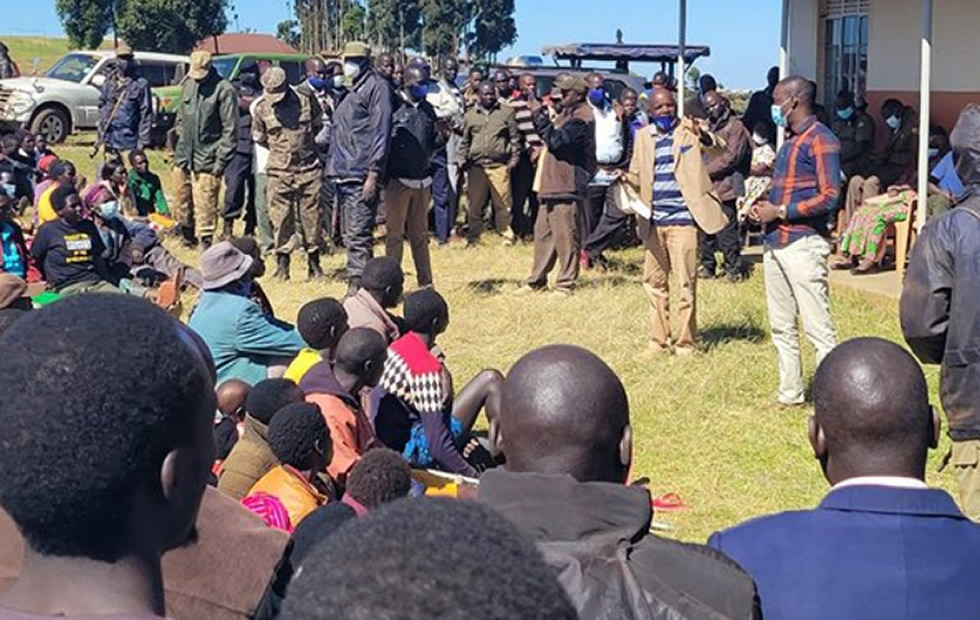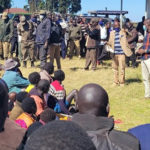The State Minister for Tourism, Hon. Martin Mugarra Bahinduka on Tuesday 27th July, 2021 visited Murchison Falls Conservation Area to assess the Human Wildlife Conflict (HWC) issues in Kiryandongo district. The visit was intended to assess the magnitude of HWC issues and interface with communities in a bid to find lasting solutions together with communities.
To receive the Minister to the Conservation Area was Deputy Director Field Operations Mr. Charles Tumwesigye, Chief Warden MFCA Mr. Edison Nuwamanya flanked by area Members of Parliament for Kibanda South, Hon. Lenos Ngopek, Kibanda North, Hon. Karubanga Jacob, Hon. Kahunde Hellen Max, Woman MP Kiryandongo District, Chairperson LC V, Hon. Edith Aliguma, RDC Kiryandongo, Mr. Debelle Peter and some members of the district Executive Committee.
The team visited 03 sub counties of Kicwabugingo, Nyankende and Nyamahasa in Kiryandongo and held 03 meetings in Kiogoma, Kibimbya and Kibyama that attracted several communities affected by Problem animals. Hon. Mugarra in his remarks to communities was cognizant of the enormous challenges that Human Wildlife Conflict issues had on conservation of wildlife and pledged to work with communities and areas leaders to resolve to mitigate the challenge. He promised to ensure support to the injured persons as a result of wildlife attacks especially the family of late Akwong Esther. The minister proposed further implementation of electric fence among other interventions as more feasible methods to manage the conflict of people and wildlife.
The Deputy Director Field Operations Mr. Tumwesigye informed the team that elephants, vervet monkeys, wild pigs and olive baboons were the main crop raiders. He explained that despite the challenge, Uganda Wildlife Authority had taken up multiple interventions to mitigate HWC issues. These include trench digging, planting of unpalatable crops like chili, sun flower, simsim on the boundaries of national parks to discourage wildlife from being attracted to community habitats. He said construction of an electric fence is being piloted around Karuma, while interventions such as use of bee hive fence for huge mammals like elephants and trenches are already being undertaken.
Mr. Tumwesigye further said that UWA trains and equips wildlife scouts in managing problem animals adding that in some unique cases when elephants get rowdy and aggressive, scare shooting is done by the rangers to drive the animals back to the park. “UWA also under takes training and equipping of wildlife scouts to help guard communities in event that the wildlife comes out of the park,” he noted. He requested communities experiencing HWC and require compensation to be patient with UWA as the regulations once finalised will operationalise the compensation clause of the Wildlife Act 2019.
The Chairperson LC V Kiryandongo Edith Aliguma Adyeri informed the team that HWC were more pronounced in her district and as such, she has prioritised to support digging trenches as a way of mitigating the issue together with other measures such as bee keeping for both livelihood improvement and protection of crops. “Elephants have become rampant and communities are spending sleepless nights with children not attending school. Therefore, revenue sharing is being used for trench excavation. Wildlife scouts have volunteered but need to be taken up by UWA and paid,” she stated.


